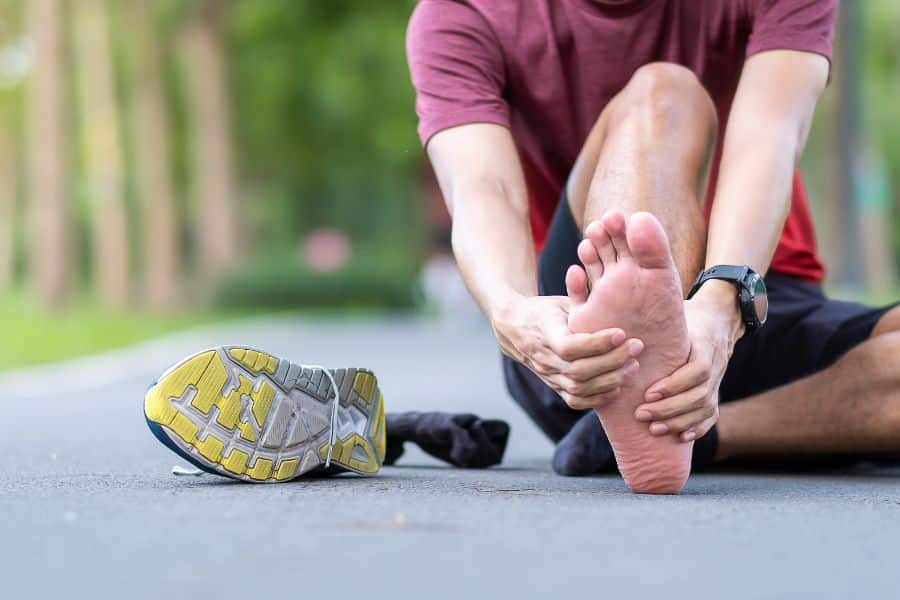Physical Therapy for Plantar Fasciitis

Plantar fasciitis is a condition that causes pain in the heel and arch of the foot. Plantar fasciitis affects the band of tissue that supports the arch of your foot during exercise, sports, running, and walking: the plantar fascia. Plantar fasciitis can affect people of all ages and abilities, but is more common among runners and people who spend a lot of time on their feet. Excess strain on the plantar fascia can cause increased inflammation. Over time, the fascia can thicken and show signs of break down due to overloading the body’s capacity to heal itself. Often, tight muscles in the calf and muscle imbalances throughout the leg are to blame for this excessive strain. The result is intense heel pain and stiffness, which is often worst first thing in the morning.
Risk factors for plantar fasciitis include:
Prolonged or repetitive high impact sports or activities
Prolonged standing on hard, flat surfaces
High arches or flat feet
Age 40-60
Excessive body weight
Fortunately, there are many effective non-surgical treatments that can be done to relieve symptoms of plantar fasciitis. Physical therapists can design treatment plans for individuals with heel pain associated with plantar fasciitis. Treatment can include:
Assessing how you walk and gait training
Manual therapy, including dry needling, to reduce pain and improve mobility
Instruction for when to apply ice for pain and inflammation
Temporary taping of your foot for short-term relief
Recommending shoe inserts, supportive footwear, or a night splint
Teaching you specific stretching and strengthening exercises
Research shows that both strengthening and stretching exercise programs, including stretching the Achilles tendon, can significantly reduce pain and improve walking in people with plantar fasciitis. Research also shows that dry needling can be used to relieve muscular pain and increase range of motion by releasing tension in trigger points of the foot and lower leg.
If you are struggling with heel pain associated with plantar fasciitis, please reach out to us for an evaluation today!
